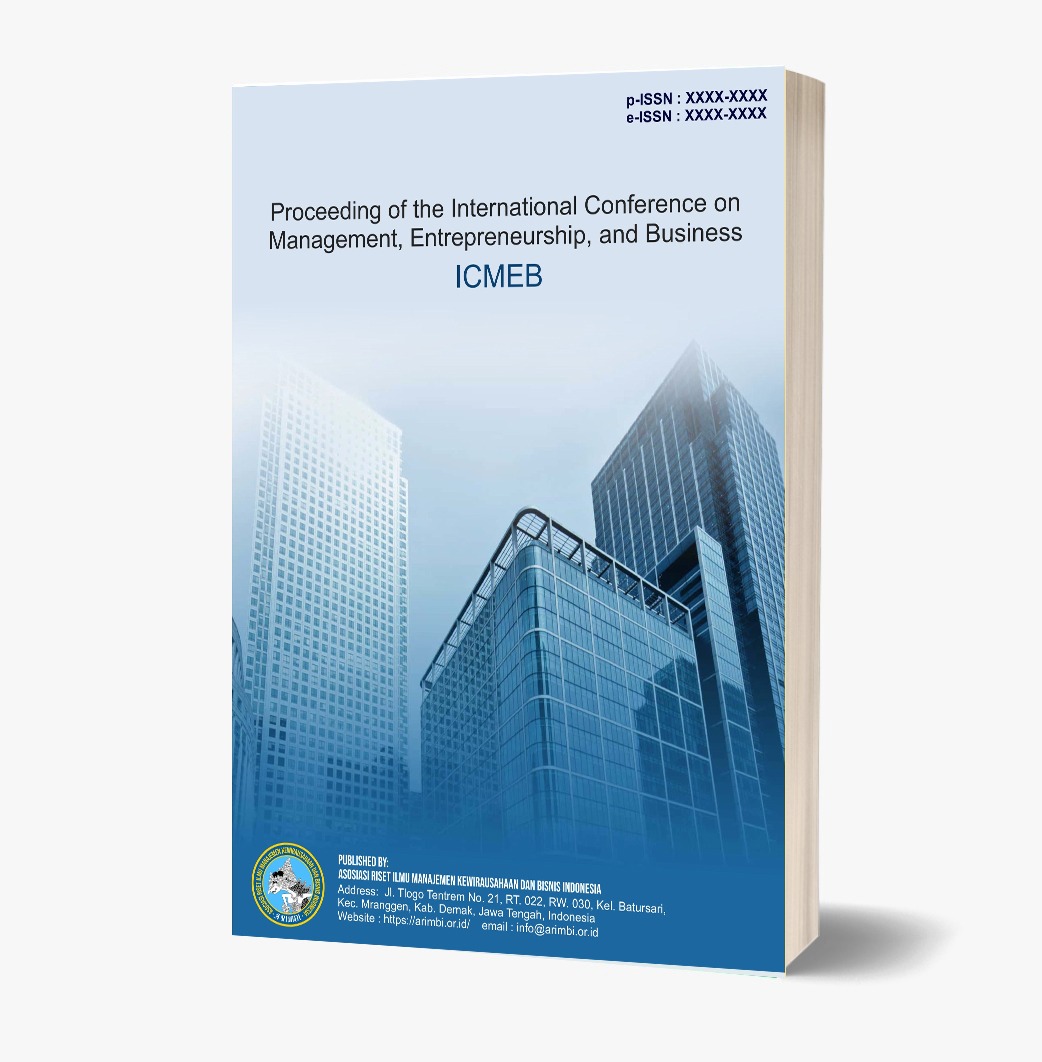Business Model Innovation as an Effort to Improve Marketing: Case Study in Rodokar, Yogyakarta
DOI:
https://doi.org/10.61132/icmeb.v1i2.102Keywords:
Business, Canvas Business, Community Economy, Digital MarketingAbstract
To be able to excel in business competition in the culinary industry, MSME managers need to carry out good sustainable innovation. The aim of this research is to assist and improve the rodokar business. Research methods that can help business actors in designing a strategic plan is to use the Business Model Canvas. Data collection to carry out analysis on the Business Model Canvas was carried out by observation and interviews manager. Digitalization support activities marketing will be carried out in three stages: education, mentoring, and sustainability assessment. Training will given to increase partners' knowledge and understanding of various digital marketing platforms. The results of this activity are expected to expand partners' knowledge and understanding in the field of digitalization marketing. Mentoring activities are carried out to ensure partners are able to apply technology and training provided. In the end, the outcome that the partners want to achieve as business actors is an increase in partner economies of scale.
Downloads
References
Baron, R.A. (1998). COGNITIVE MECHANISMS IN ENTREPRENEURSHIP: WHY AND WHEN ENTERPRENEURS THINK DIFFERENTLY THAN OTHER PEOPLE. In Journal of Business Venturing 13.
Capó-Vicedo, J., Ortiz-Rodríguez, B. (2015). 10 PASOS PARA DESARROLLAR UN PLAN ESTRATÉGICO Y UN BUSINESS MODEL CANVAS. 3C Empresa Investigación y Pensamiento Crítico, 4(4), 231–247. https://doi.org/10.17993/3CEMP.2015.040424.231-247
Kittichotsatsawat, Y., Rauch, E., Tippayawong, K.Y. (2024). Designing sustainability measurement of a Thai coffee supply chain using axiomatic design and business model canvas. Results in Engineering, 24, 103443. https://doi.org/10.1016/J.RINENG.2024.103443
Montenegro, J.F., Contreras, P.A., Saenz, F. (2021). Hybridization of the Kano model and business model canvas: aeronautical and metalworking industry in Bogota, Colombia. Heliyon, 7(10), e08097. https://doi.org/10.1016/J.HELIYON.2021.E08097
Murphy, C., Carew, P.J., Stapleton, L. (2023). Innovation Process Modelling for Human- Centred Cultural Heritage Spaces: Developing a Business Model Canvas for Smart Digital Immersion. IFAC-PapersOnLine, 56(2), 9954–9959. https://doi.org/10.1016/J.IFACOL.2023.10.695
Setiawan, I., Malihah, E. (2021). Increasing Social Entrepreneurship Village-owned enterprises (BUMDEs).
Sikorová, E., Meixnerová, L., Menšík, M., Pászto, V. (2015). Descriptive Analysis and Spatial Projection of Performance among the Small and Middle Enterprises in the Olomouc Region in the Czech Republic in the Context of Accounting and Tax Legislation. Procedia Economics and Finance, 34, 528–534. https://doi.org/10.1016/s2212-5671(15)01664-0
Sogenbits, T., Turksen, U. (2024). Cracking the code: Unveiling carding crime through the darknet-acquired criminal carding manual and the business model canvas. Journal of Economic Criminology, 5, 100071. https://doi.org/10.1016/J.JECONC.2024.100071
Ubrežiová, I., Kozáková, J., & Malejčíková, A. (2015). Corporate Social Responsibility and Perception of Environmental Pillar in the Selected Set of the Slovak Enterprises. Procedia Economics and Finance, 34, 542–549. https://doi.org/10.1016/s2212-5671(15)01666-4
What enterpreneurs are like, and what they do. (2006). In Enterprise: Entrepreneurship and Innovation (pp. 37–62). Elsevier. https://doi.org/10.1016/b978-0-7506-6920-7.50007-0






